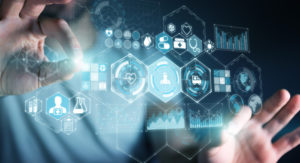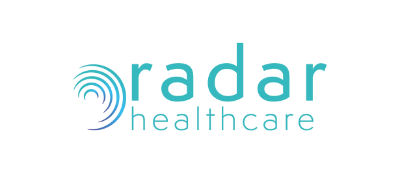Inside our innovation roadmap…
19 August 2021
Tags:
Our focus on innovation is a real point of pride for us here at Radar Healthcare – always working to utilise the latest technology to provide our customers with new, exciting, and (most importantly) useful options.
We caught up with Mark Fewster, Head of Product, to find out what’s in the innovation pipeline right now…

“Technology should be making life easier for people so that they can spend more time focusing on where they can deliver most impact.”
“Our product is constantly growing to meet the needs and requirements of our customers, and listening to our customers plays a vital role in that. After all, we want to make sure that every exciting new feature we add to Radar Healthcare is designed to make the lives of healthcare professionals easier, their ways of working more efficient, and offer valuable insight that helps to improve safety and outcomes. Here’s a snapshot of a few of the developments underway at the moment…
Predictive Analytics, AI and machine learning
We recently launched our initial predictive analytics – in the simplest terms, we like to think of it as a crystal ball, tracking events to understand the probability of something happening if you don’t act. And now we’re using AI and machine learning to track additional points of information. This could be incidents logged in the system, performance stats, or data from sources external to Radar Healthcare. An example could be that the system is tracking lots of falls, and the AI has detected through a pattern in the that all the falls seem to be happening in a particular location when you have slightly less staff available. The system can not only highlight this as an issue, but also provide a prediction of the probability of this happening again if you don’t take action. It can also initiate a number of tasks which are automatically sent to the people who need to see them. Essentially, we’re automatically shifting your way of working to proactively managing risks rather than reacting acting after something has happened.
With this sort of technology, care professionals no longer need to rely on lengthy manual processes of analysing data, waiting for reports, which sometimes mean it becomes too late. In reality, all technology should be making life easier for people so that they can spend more time focusing on where they can deliver most impact.
Internet of things (IoT)
For one of our customers, we’re exploring connecting Radar Healthcare to a patient safety monitor, so if the monitor alarms the subsequent actions and processes will be automatically set in motion (and evidenced) in Radar Healthcare. The equipment manufacturers also benefit as they’ll be able to host guides, troubleshooting documents and equipment audits on Radar Healthcare too, so everyone will know how to use and maintain the system enabling them to provide the best care possible. We’ll also be connecting Radar Healthcare to an epilepsy monitor to explore the same process.
Natural Language Processing (NLP)
In simple terms, incorporating NLP into Radar Healthcare will enable the user to ask the system a question without having to search the different modules, and it will work it out for them. For example, how many events did we have on a specific day, or where are we at with a specific event?
Robotic Process Automation (RPA)
RPA will help automate processes that are manual but don’t need to be. For example, when a complaint comes in, someone usually has to manually type out a response and add the details, opening them up to human error. But with RPA, the system will automatically complete this step for them, saving lots of time.”







